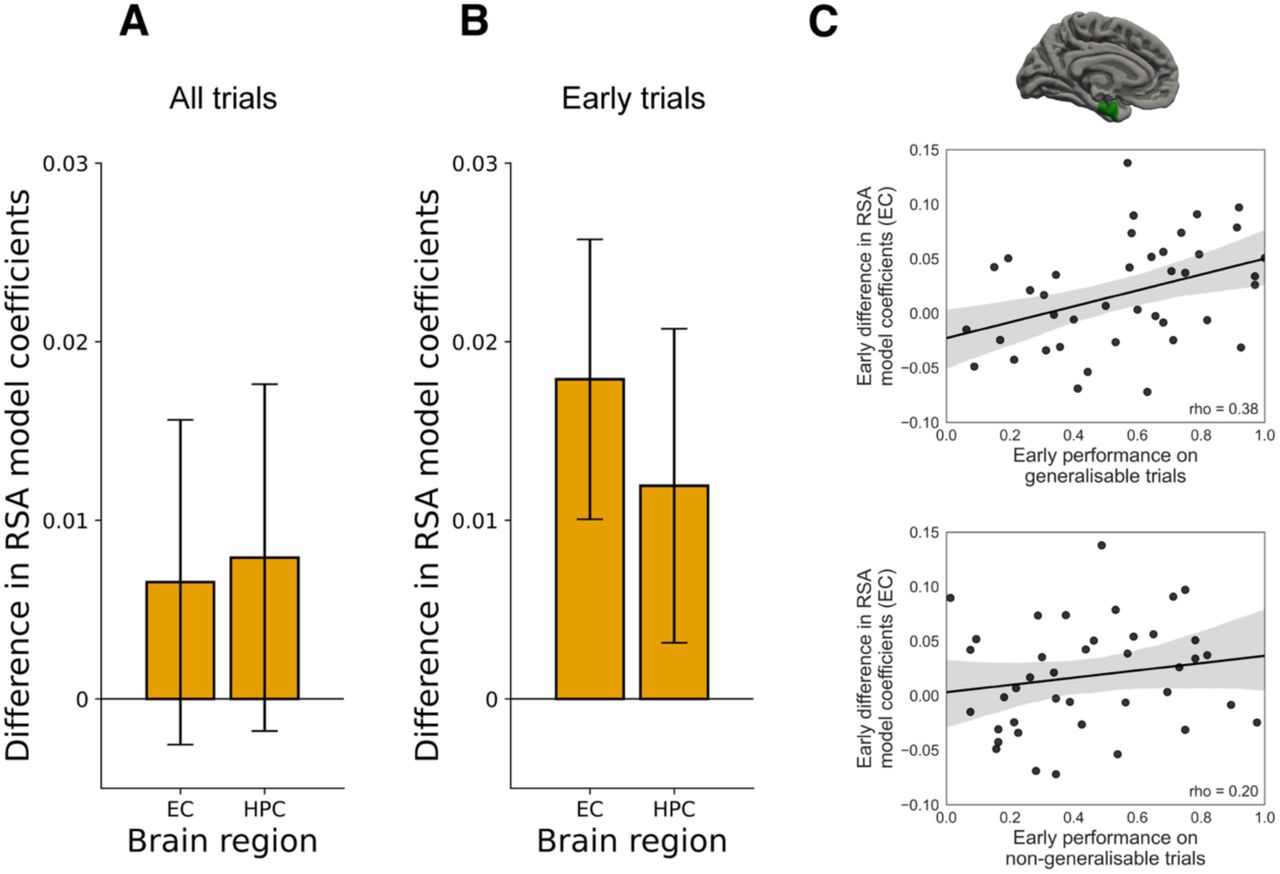Abstract
No two situations are identical. They can be similar in some aspects but different in others. This poses a key challenge when attempting to generalise our experience from one situation to another. How do we distinguish the aspects that transfer across situations from those that do not? One hypothesis is that the medial temporal lobe (MTL) meets this challenge by forming factorised representations that allow for increased neural similarity between events that share generalisable features. We tested this hypothesis in a functional magnetic resonance imaging study. Forty people were trained to report behavioural sequences based on an underlying graph structure. People then made decisions in a new environment where some, but not all graph transitions from the previous structure could be generalised. Behavioural results showed that participants distinguished the generalisable transition information. Accuracy was significantly higher in blocks in which sequence transitions were shared across environments, than those in which transitions differed. This boost in accuracy was especially pronounced during early exposure to the novel environment. Throughout this early phase, neural patterns in the entorhinal cortex (EC) showed a corresponding differentiation of the generalisable aspects. Neural patterns representing starting locations in familiar and novel environments were significantly more similar in the EC on trials where sequences could be generalised from prior experience, compared to trials with new sequential transitions. This signalling was associated with improved performance when prior sequence knowledge could be reused. Our results suggest that during early exposure to novel environments, the EC may signal dimensions of past experience that can be generalised.
